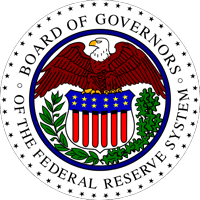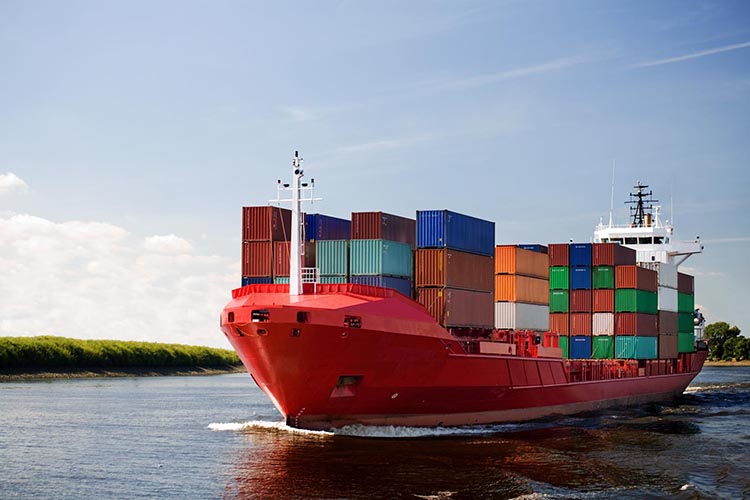FTZ’ine July 2019
July 1, 2019
FTZ’ine September 2019
September 5, 2019CFS Is The New FTZ:
Container Freight Stations (CFS) are replacing FTZs as the must-have supply chain tool for e-commerce fulfillment. Because a CFS can be little more than a cross-dock operation, communities with e-commerce distribution facilities stand to lose jobs overseas unless action is taken soon to allow FTZs to process shipments that qualify for the de minimus (Section 321) duty exemption enacted by Congress in 2016. Read why below.
The Federal Reserve lowered interest rates 0.25% yesterday and noted that the current strength of the U.S. economy may not warrant any more cuts.
The latest round of trade talks between the U.S. and China ended on Wednesday in Shanghai with no end to the dispute in sight. Even within the Administration all hope is gone that any agreement will be reached before the Presidential elections. FTZ users should plan accordingly, as discussed below.
That was fast - Acting Commissioner of Customs John Sanders stepped down from the post on July 5th, after only 8 weeks in the job. Mark A. Morgan, previously Acting Commissioner of Immigration and Customs Enforcement (ICE), took over the role.

Top Story: CFS Program Replacing FTZs as Must-Have Supply Chain Tools
On May 8, 2018, U.S. Customs issued a ruling (HQ H275567) stating that withdrawals from a foreign-trade zone could not qualify for duty-free treatment under Section 321. Congress previously expanded the limit of merchandise that could be entered duty-free under Section 321 to $800 per person, per day as part of the TFTEA legislation.
However U.S. Customs will allow duty-free entries under Section 321 when they are processed through a Container Freight Stations (CFS). Since a CFS has very low labor input, this disparity will lead to a loss of U.S. jobs unless Congress is pressed to resolve the difference.
In a CFS, an importer can deconsolidate bulk shipments of merchandise already packaged for individual sale in the United States. Thus, much less work is required when the package gets to the United States.
Only larger ports receiving full containers, such as rail heads and ocean ports, make sense to take part in the CFS model. Smaller zone programs with e-commerce operators may experience the outright closure of their facilities.
Once CFS supply chains become more prevalent, it will he hard to reverse the trend, because the CFS model has inherently lower U.S. labor input than an FTZ. If there is a long delay in Congressional action on Section 321, job losses will likely be permanent.
Unless Grantees and other push for change in the law, smaller ports in particular are likely to experience employment losses in distribution centers that fulfill e-commerce goods.
To deal with the explosion of interest, CBP has announced the development of an entry type 86 for ABI submission of Section 321 shipments. Though release of this functionality was pushed back from this month to the end of September, this automation will greatly ease the process for filing duty-free Section 321 entries.
A CFS is a warehouse that specializes in the consolidation and deconsolidation of cargo. The maximum stay in a CFS is 15 calendar days pending release from CBP. Automated release in ACE will make it easier to comply with this requirement.
As a result, U.S. Customs has been inundated in certain ports with requests to approve more Container Freight Stations in advance of automation of the entry process.
Its Official: China Tariffs Are Here To Stay


Federal Reserve Lowers Interest Rates But Cites Strong U.S. Economy
Boris Johnson Intent On Brexit, Deal or No Deal


ISF Penalties Catching FTZ Users
Importers must transmit an Importer Security Filing (ISF, and sometimes referred to as 10+2) to CBP no later than 24 hours before cargo is laden aboard a vessel destined to the U.S.
Enforcement of this regulation was most recently delayed by the government shutdown at the beginning of the year.
Those delays are now over and U.S. Customs has rapidly ramped up levying fines for infractions, most notably including late filing.
The ISF consists of either ten data elements for shipments of goods intended to be entered into the U.S. or delivered to a foreign-trade zone, or five data elements for shipments entirely of cargo or goods intended to be transported for export.
CBP can assess damages up to a maximum of $10,000 per shipment for violations such as failure to file ISF ($5,000 per shipment), late filing of ISF ($5,000 per shipment), incomplete filing of ISF ($5,000 per shipment), failure to withdraw ISF ($5,000 per shipment), or failure to ensure ISF filing matches Bill of Lading ($5,000 per shipment)
If that were not bad enough, you may also face cargo holds until CBP receives the required information and has had the opportunity to review and examine the documentation.
In a best-case scenario , violations can be reduced to $1,000 for 1st violation, $2,500 all subsequent violations. C-TPAT Participants (Tier II & III only) can get a further reduction to 50% of that amount.

U.S. Foreign-Trade Zones Board Activity
- ProAmpac Holdings, Inc. received approval to operate its facilities in Neenah and Appleton, Wisconsin as a subzone of Foreign-Trade Zone 162. MORE
- Mayfield Consumer Products received approval to expand subzone 294A in Mayfield, Kentucky. MORE
- BWF America, Inc. did not receive authorization of production activity for textile/felt filter bags and other filter products in Foreign-Trade Zone 47 in Hebron, Kentucky. MORE
- Whirlpool Corporation received authorization of production activity for dishwashers in Foreign-Trade Zone 151 in Findlay, Ohio. MORE
- Detroit Bikes LLC received authorization of production activity for electric and non-electric cycles in Foreign-Trade Zone 70 in Detroit, Michigan. MORE
- Offshore Energy Services Inc. received authorization of production activity for casing pipe with connectors in Foreign-Trade Zone 124 in Broussard, Louisiana. MORE
- Puerto Rico Steel Products Corporation received authorization of production activity for construction and fencing products in Foreign-Trade Zone 163 in Coto Laurel, Puerto Rico. MORE
- Flemish Master Weavers received approval to expand Subzone 186A in Sanford, Maine. MORE
- GDI Technology, Inc. received approval to operate its facility in Miami, Florida as Subzone 281C. MORE
- Framatome, Inc. received authorization of production activity for fuel rod subassemblies in Foreign-Trade Zone 203 in Richland, Washington. MORE
- MTD Consumer Group Inc. submitted additional evidence in support of its application for production authority within Foreign-Trade Zone 158 in Verona, Mississippi. MORE
- Lexmark International received authorization of production activity for organic photoconductor drums in Foreign-Trade Zone 123 in Longmont, Colorado. MORE
- Staal & Plast USA, Inc. submitted a notification of proposed production activity for irrigation trays in Foreign-Trade Zone 176 in Rockford, Illinois. MORE
- Cheniere Energy Partners, L.P. received authorization of production activity for liquified natural gas in Foreign-Trade Zone 291 in Cameron, Louisiana. MORE
- GE Renewables North America, LLC received authorization of production activity for wind turbine nacelles, hubs, and drivetrains in Foreign-Trade Zone 249 in Pensacola, Florida. MORE
- ZF Chassis Systems Duncan, LLC submitted a notification of proposed production activity to add addional components for automotive suspension systems in Foreign-Trade Zone 38 in Spartanburg County, South Carolina. MORE
- The Lee County Port Authority submitted an application to reorganize Foreign-Trade Zone 213 under the Alternative Site Framework with a service area of Charlotte, Collier, and Lee County, Florida. MORE
- The Lewiston-Auburn Economic Growth Council received approval to expand the ASF service area of Foreign-Trade Zone 263 to include York County, Maine. MORE
- Electrolux Home Products, Inc. received authorization of production activity for appliances in Foreign-Trade Zone 38 in Anderson, South Carolina. MORE
CFS Is The New FTZ:
Container Freight Stations (CFS) are replacing FTZs as the must-have supply chain tool for e-commerce fulfillment. Because a CFS can be little more than a cross-dock operation, communities with e-commerce distribution facilities stand to lose jobs overseas unless action is taken soon to allow FTZs to process shipments that qualify for the de minimus (Section 321) duty exemption enacted by Congress in 2016. Read why below.
The Federal Reserve lowered interest rates 0.25% yesterday and noted that the current strength of the U.S. economy may not warrant any more cuts.
The latest round of trade talks between the U.S. and China ended on Wednesday in Shanghai with no end to the dispute in sight. Even within the Administration all hope is gone that any agreement will be reached before the Presidential elections. FTZ users should plan accordingly, as discussed below.
That was fast – Acting Commissioner of Customs John Sanders stepped down from the post on July 5th, after only 8 weeks in the job. Mark A. Morgan, previously Acting Commissioner of Immigration and Customs Enforcement (ICE), took over the role.

